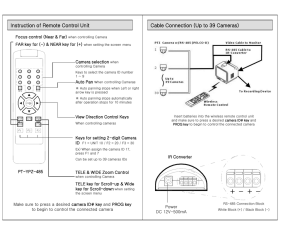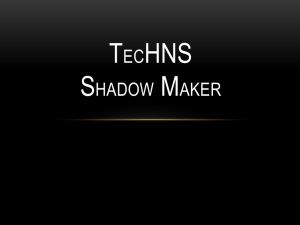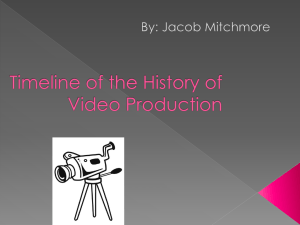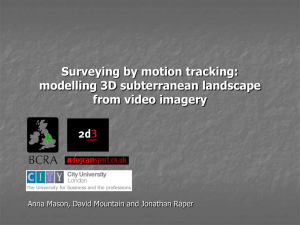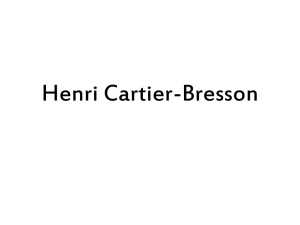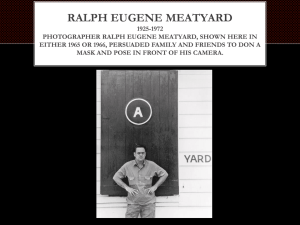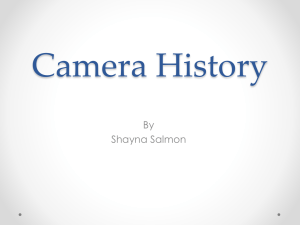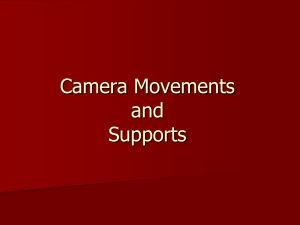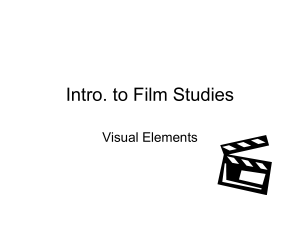TV Genres Week 5 Documenting the Real through Comedy and
advertisement
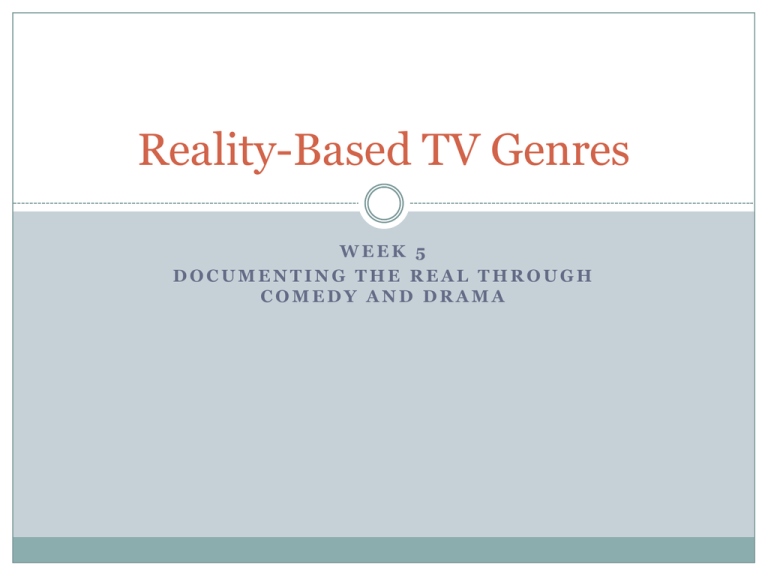
Reality-Based TV Genres WEEK 5 DOCUMENTING THE REAL THROUGH COMEDY AND DRAMA Candid Camera The Panopticon (Jeremy Bentham; Michele Foucault). - Being watched without our knowledge - The normalization of being watched within hierarchical structures. ("On the whole, therefore, one can speak of the formation of a disciplinary society in this movement that stretches from the enclosed disciplines, a sort of social ‘quarantine’, to an indefinitely generalizable mechanism of ‘panopticism”) Candid Camera According to the author Candid Camera operates to assuage simulation anxiety – the inability to distinguish between the real and the manufactured surveillance anxiety – the fear that one’s actions are being constantly monitored. Candid Camera Within a Cold War context Candid Camera reinforces and normalizes the American citizen’s duty to: - OBSERVE -RECORD -INFORM Spying becomes a form of ENTERTAINMENT Candid Camera Establishes an aesthetic that has highly influenced the “visual realism” that is present in today’s Reality TV programming Narrative tension relies on voyeuristic pleasure of audience Establishes a low-pay business model for “real people” featured in observational programming. Candid Camera “targets” were paid $50.00 (1994). (as SAG member would make aprox $450 for a day’s work in 1994). The Writers Guild of America CITES Candid Camera as the first “reality TV show” in their on going effort to unionize reality writers. Candid Camera Documenting the real – - “illusion of transparency” (Reality TV is constructed to resemble the real.) - Reality TV reinforces and STRENGTHENS the SIMULACRUM (the manufactured representation of the real becomes seen and thought of as the real). i.e. (people go to EPCOT rather than EUROPE). Candid Camera Candid Camera overview Ran from 1948-1992. Appeared on ABC, NBC,CBS, The Playboy Channel, and national syndication. Spawned NUMEROUS “hidden camera prank” shows across the globe. Japan An American Family A small documentary film crew filmed the Loud family for seven months in 1971 Exec Producer Craig Gilbert billed the show as “a real life soap opera” Filmmakers Alan and Susan Raymond attempted to maintain ethical practices in observational documentary. They did not have final edit and were credited as CREW not directors. An American Family Son Lance Loud was the first openly gay person/character to appear on American television. The Raymonds maintain that Gilbert operated to DESTROY the Loud family. Gilbert denies feeding information to Pat about her husband’s infidelity. An American Family Upon release of the 13 episode PBS series the FAMILY was vilified not the producers. The “crew” however were blacklisted from many documentary funding sources. Alan and Susan Raymond Interview with Lance and Loud Children Take away: The documentary’s interconnectedness with PBS helps AAF maintain a “high art status”

